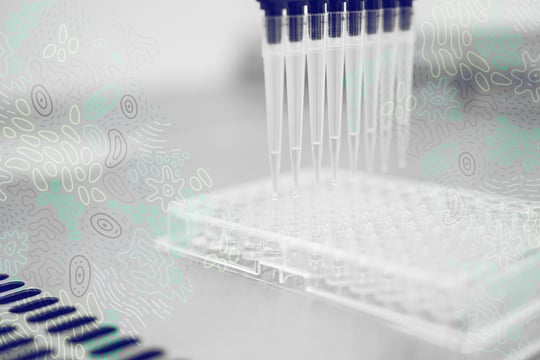Sequencing and bioinformatics services
Download the brochure: Genome analysis of microorganisms
Get the latest news and insights from the world of food safety and subscribe also to our newsletter.
/Asiantuntijuus/food-safety-consulting-15-biosafe-1000x1000.jpg?width=1920&name=food-safety-consulting-15-biosafe-1000x1000.jpg)
/Asiantuntijuus/food-safety-consulting-14b-biosafe-1000x1000.jpg?width=512&name=food-safety-consulting-14b-biosafe-1000x1000.jpg)
Safety assessment of microorganisms
Why?

Today, genome analysis guides the safety assessment. EFSA requires the analysis of whole genome sequence for bacteria and yeasts.
When microorganisms are used in the food chain or as biopharmaceuticals, their safety has to be assessed before the authorization of the organisms or derived products in the EU. Today, genome analysis guides the safety assessment. EFSA requires the analysis of whole genome sequence for bacteria and yeasts. It is only recommended for filamentous fungi because the genome data are less complete.
How?
Bioinformatics services at Biosafe provide genome-based safety assessments of microorganisms. Usually, we start with DNA isolation and carry out genome assembly and annotation after sequencing. A pipeline has been developed in-house to obtain the needed information from the genome in a cost-effective manner. As bioinformatics is a fast-developing field, no exact methods are recommended by EFSA or by other authorities. Biosafe closely monitors possible changes in the requirements and if so, we adjust the pipeline without delay.
Unequivocal taxonomic identification at the species level is a crucial requirement. It is also essential for granting the QPS (qualified presumption of safety) status for a microorganism. Sometimes the taxonomic analysis leads to the description of a new species.

Genes of concern are searched for from the genome. These include putative antimicrobial resistance genes as well as those related to toxicity and pathogenicity.
EFSA recommends certain identity, similarity and coverage thresholds for those genes that should be reported and assessed. Usually, we assess genome safety in parallel with microbial testing. Phenotypic tests, such as antimicrobial susceptibility, help interpret the data, e.g, if the antimicrobial resistance can be linked to the presence of a known resistance gene.
For genetically modified microorganisms, we describe the genetic modifications in detail. Secondary metabolite biosynthesis clusters are searched for and assessed case-by-case.
Biosafe has assessed hundreds of genomes and has gained valuable knowledge about the characteristics of common industrial microorganisms, and what can be expected and not expected during the hazard identification step. The study reports include expert data interpretation in the light of current scientific knowledge and are ready to be delivered to the authorities as is.
Sequencing services
Biosafe offers comprehensive sequencing services in collaboration with our sequencing partners. We sequence microbial genomes, plasmids or individual genes based on specific needs. All sequencing projects are unique and designed together with the customers, including selection of the sequencing platform.
See our bioinformatics services
-
-
Bioinformatics provides genome-based safety assessments of microorganisms. Usually, the project starts with DNA isolation and continues to whole genome sequencing and assembly and annotation of the genome. We can also work with sequence data provided by the customer.
-
-
-
Unequivocal taxonomic identification at the species level is a key requirement and basis of microbial safety assessment.
-
-
-
Whole genome sequencing (WGS) provides a comprehensive view for assessing the safety of a microorganism, which can be complemented with phenotypic tests.
-
-
-
The intended (and unintended, focusing on genes of concern) genetic modifications introduced in the genome in the laboratory must be verified by sequencing.
-
-
-
Do you wish to know something about your microorganism not listed in our service descriptions?
-
-
-
One key aspect in the safety assessment of enzymes and other proteins is the potential allergenicity. The assessment is a stepwise process, in which bioinformatic analysis is usually the first screening step.
-
Your path to approved studies — what happens after you contact us?
What you do:
1.
Contact us
Take the first step and reach out to Biosafe.
What we do:
2.
Personalised Kick-off Meeting
Biosafe clarifies your objectives and expectations.
What you do:
3.
Accept the quote & provide background info
Customize our services to your unique needs.
What we do:
4.
Clear shipment instructions
We’ve got the playbook for shipping biological samples safely.
What you do:
5.
Send your samples
Send your samples to Biosafe. You can also send us Whole Genome Sequencing (WGS) data.
What we do:
6.
Comprehensive DNA sequencing and analysis service
Biosafe processes, analyses the WGS data and drafts a comprehensive report.
What you do:
7.
Review the WGS and bioinformatics report
We will perfect the final EFSA-compliant report with your feedback.
What we do:
8.
Continuous support with authorities
Biosafe’s got your back, addressing post-submission queries or if any issues emerge.
Contact us

Jenny Makkonen
Project Manager, PhD
+35840 5474 110
jenny.makkonen@biosafe.fi

Daniel Blande
Bioinformatician, PhD
+35840 506 8086
daniel.blande@biosafe.fi

Lars Granlund
Project Manager
+358 40 5061 244
lars.granlund@biosafe.fi
Book a free consultation appointment
Request a quote or ask for more information!
You can also make an appointment for a free consultation.






